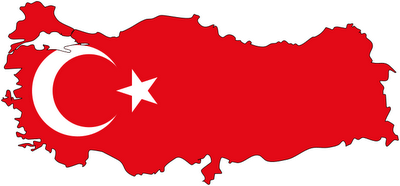Saturday, August 9, 2008
Journalists are stopped in the street, forced into cars, abused and held for hours and sometimes days for simply writing about corruption and other problems
In recent years Western media has given us a fantastic picture of northern Iraq. The Middle Eastern region that proves that democracy is possible and that democracy conquers land and also shows the picture of a region that in a short time has developed into a tourist paradise. These pictures are indeed correct — but there is also another reality.
Please allow me to give an account of the prosecution of Kurdish, Assyrian and Arabic journalists in northern Iraq.
Death and torture:
March 6, 2008, 74-year-old Abd al-Sattar Taher Sharif was shot dead in Kirkuk. He had, for a period of time, received assassination threats for his criticism of Kurdish leaders’ corruption and nepotism. July 21, Souran Mama Hama, a 23-year-old journalist, was shot and killed outside his parents’ house in Kirkuk. He had, in his articles, revealed irregularities within the two leading parties: the KDP, or Kurdish Democratic Party, and the PUK, or Patriotic Union of Kurdistan. Also in July this year, according to Amnesty International, a document had circulated with a death list containing 16 names in the risk zone in the Iraqi regions dominated by Kurds. Both Hama and Sharif were on this list.
A Kurdish journalist who I worked with was arrested earlier this year. The KDP interrogated him and he was abused before being released with the message, “You’ve got a choice, either you end your writing or your life will end”.
He is not the only journalist who, arbitrarily and without trial, has been arrested, put into jail and tortured. Journalists are stopped in the street, forced into cars, abused and held for hours and sometimes days. The well-known journalist and human rights activist, Mohammad Siyassi Ashkani was arrested in January last year and held for six months without charges being brought and without subsequent trial. He spent 55 days alone in a cell and was not given a chance to speak to a lawyer. June 3, Rezgar Raza Chouchani was also arrested and imprisoned in a secret place, interrogated by the Kurdish secret service because of his writings on the corruption in KDP’s hierachy.
I am worried about the other 13 journalists on the death list and I’m worried about the development in northern Iraq. Is the president of Kurdistan a new dictator? A new Saddam? And above all, will Swedish and Western journalists see the reality as it is and not wait for 20 years as was the case with Mugabe?
“We will not allow anyone to talk or write against the democratic process of KRG, anyone who doesn’t obey will have to take the consequences,” said Masoud Barzani in a televised statement a couple of months ago. Journalists perceived it as a direct threat against those who still publish articles in their own names.
It is getting worse:
The organization Committee to Protect Journalists, or CPJ, wrote a letter of protest to Barzani demanding necessary measures in order to protect journalists. The Kurdistan Journalists Syndicate, an organization defending freedom of speech in the region, claimed the situation had become steadily worse for journalists in the first six months of 2008. Sixty cases of violence, threats and even murder have been reported.
We journalists in the West cannot be involved in allowing another freedom fighter to become a dictator. Kurds in Sweden and other countries also have a huge responsibility. The Kurdish intellectuals must therefore speak up and tell the truth about the corruption, oppression and repression in the so-called democratic areas of Iraq before it is too late. They cannot pretend not to know about the undemocratic rules of the region.
…………….
Nuri Kino is a journalist in Sweden specializing in investigative journalism, and is one of the most highly awarded journalists in Europe. He is an Assyrian from Turkey.


Leave a Reply